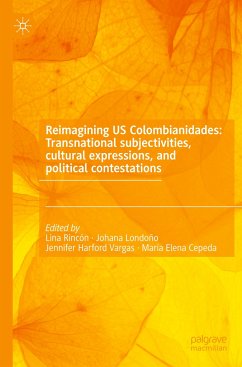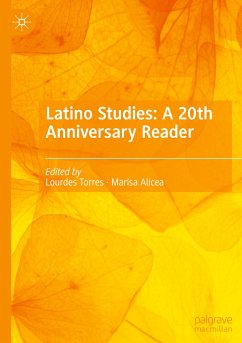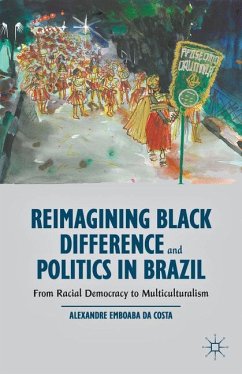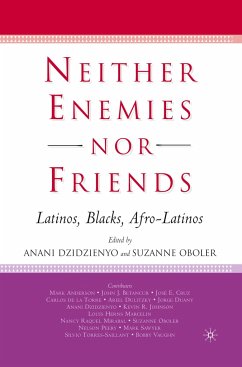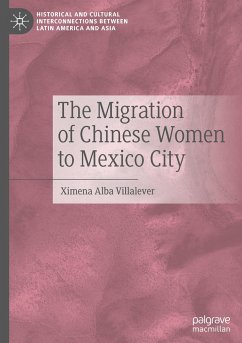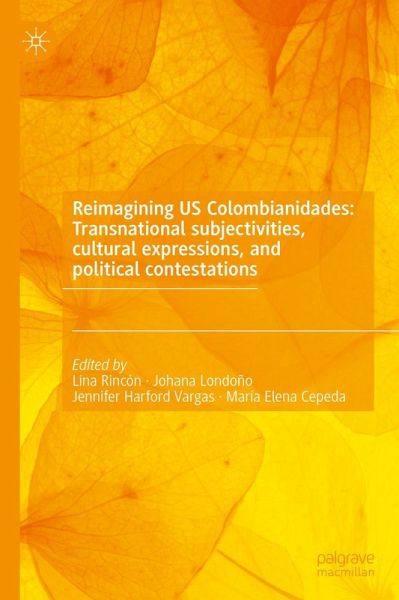
Reimagining US Colombianidades: Transnational subjectivities, cultural expressions, and political contestations

PAYBACK Punkte
42 °P sammeln!
This book focuses our attention on yet another community that has been scantily represented in Latino/a/x studies scholarship. US Colombians are no longer content to be characterized as "the other Latinos," and the editors of this special issue make the case that study of US Colombianidades enhances and productively troubles Latino/a/x studies. This engaging set of essays highlights the rich diversity of US Colombianidades as well as the group's similarities and differences with other Latino/a/x groups. With its innovative cultural studies and social sciences perspectives and interpretive theo...
This book focuses our attention on yet another community that has been scantily represented in Latino/a/x studies scholarship. US Colombians are no longer content to be characterized as "the other Latinos," and the editors of this special issue make the case that study of US Colombianidades enhances and productively troubles Latino/a/x studies. This engaging set of essays highlights the rich diversity of US Colombianidades as well as the group's similarities and differences with other Latino/a/x groups. With its innovative cultural studies and social sciences perspectives and interpretive theories, this volume offers a deep dive into issues such as how racial, gender, sexual, and socioeconomic realities shape US Colombian experience; the representation of US Colombians in popular culture; interethnic relations between Colombians and other Latina/o/xs; the political participation of Colombians in US electoral politics; Colombian transnational understandings of identity; and much more. Iwant to thank the editors of this special issue-Lina Rincón, Johana Londoño, Jennifer Harford Vargas, and María Elena Cepeda-for curating a set of articles that will most certainly inspire Latino/a/x studies scholars to expand our notions of Latinidades and be attentive to the ways in which a focus on US Colombianidades complicates and enriches our field.
Previously published in Latino Studies Volume 18, issue 3, September 2020
Previously published in Latino Studies Volume 18, issue 3, September 2020





